Publications
-
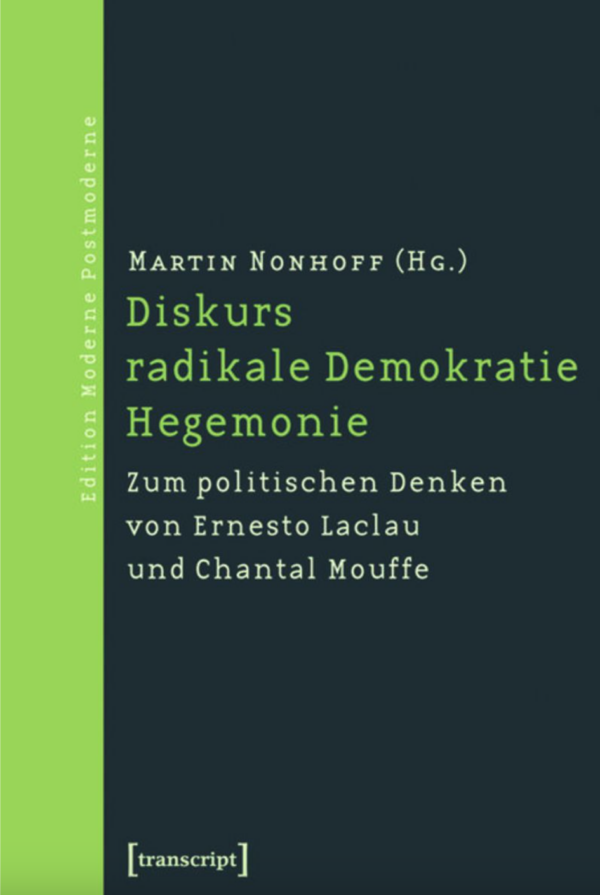 Diskurs – radikale Demokratie – Hegemonie.
Diskurs – radikale Demokratie – Hegemonie.Few political thinkers have influenced the international political and social science theory discourse of recent years as much as Chantal Mouffe and Ernesto Laclau – across paradigm boundaries. Both combine neo-Gramscian, (post-)structuralist and psychoanalytical theoretical elements and thus enable an explanation of political-discursive events, in particular the formation of hegemonies, on the one hand, and a normative theory of agonal democracy on the other.
The contributions in this volume provide an overview of Laclau’s and Mouffe’s key figures of thought, critically examine them and point out methodological and empirical connections.
This volume contains original texts by Ernesto Laclau and Chantal Mouffe, among others.
-
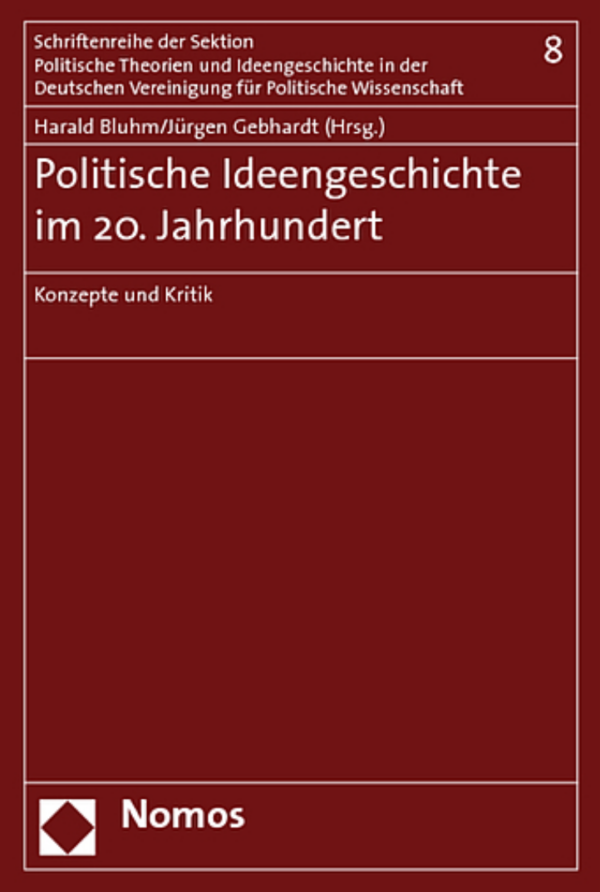 Politische Ideengeschichte und politische Hegemonie. Anmerkungen zum ‚Battle of the Books‘ an den amerikanischen Colleges
Politische Ideengeschichte und politische Hegemonie. Anmerkungen zum ‚Battle of the Books‘ an den amerikanischen CollegesIn Bluhm, Harald & Jürgen Gebhardt (eds.) Politische Ideengeschichte im 20. Jahrhundert, 223–242. Baden-Baden: Nomos. ISBN: 978-3-8329-2181-1
-
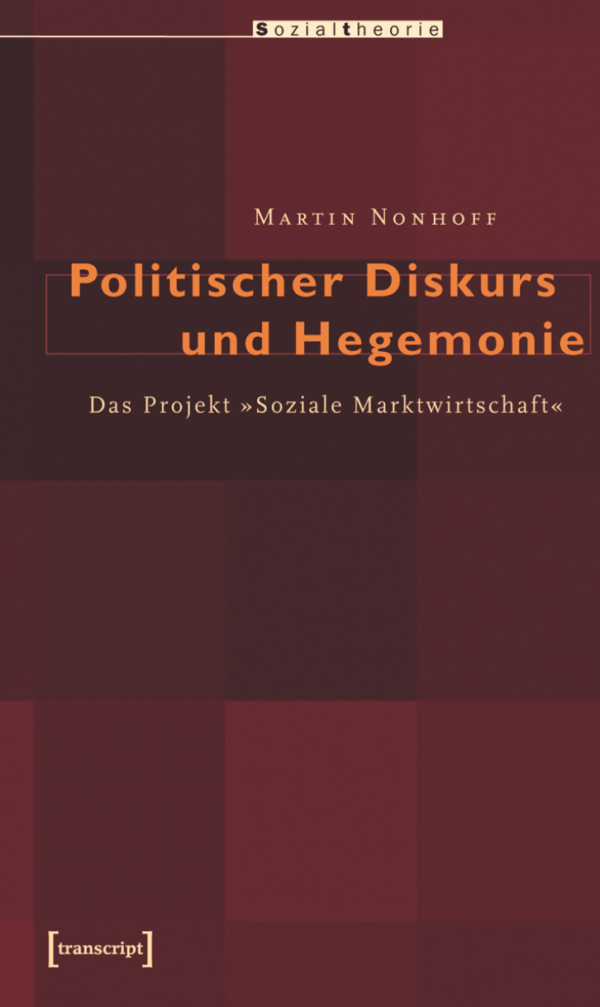 Politischer Diskurs und Hegemonie. Das Projekt »Soziale Marktwirtschaft«
Politischer Diskurs und Hegemonie. Das Projekt »Soziale Marktwirtschaft«How do dominant political language and thought patterns emerge and how are they related to social power relations? This volume aims to get to the bottom of these questions about the functioning of discursive hegemonies by linking political science and discourse studies. The political-discursive characteristics and strategies of successful hegemonies are reconstructed on the basis of an examination of the hegemonic project “social market economy”. In addition, the exemplary analysis of the West German economic policy discourse of the post-war years illustrates how political science can benefit from discourse studies research.
-
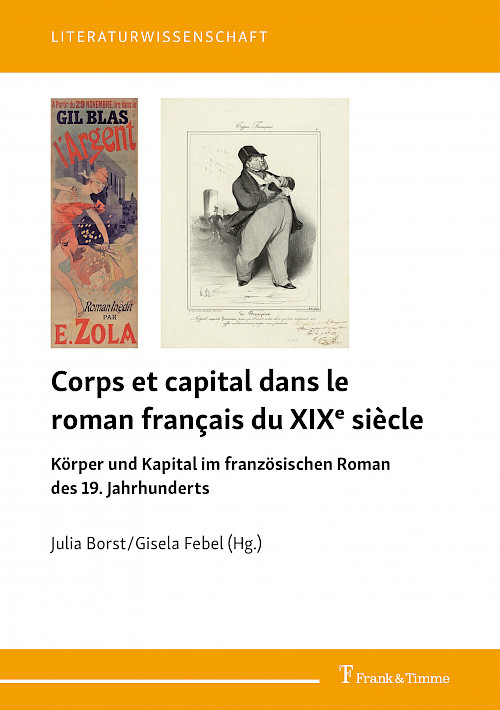 Corps et capital dans le roman français du XIXe siècle. Körper und Kapital im französischen Roman des 19. Jahrhunderts
Corps et capital dans le roman français du XIXe siècle. Körper und Kapital im französischen Roman des 19. JahrhundertsThe living body and the capitalist thinking of the modern economy seem to be irreconcilable objects. Nevertheless, their history and perception have been inextricably linked, at least since the times of industrialization and capitalization in the 19th century. Our volume follows this entangled history and the various contradictions it develops.
Since Pierre Bourdieu, we known that the body forms an incorporated cultural and social capital. It is a commodity and means of production, a sign of belonging to a social class, a place where sex, gender and power relations are negotiated or a pretext for social exclusions and racism. The body is the object of punishments, sanctions and social control, a support for affects, obsessions and illnesses as well as a site of rebellion and resistance. The 19th century novels analyzed in the contributions to this volume tell all this. From the perspective of current body studies, we propose a new reading of the great stories from Balzac to Zola, via Mirbeau, Maupassant, Louise Michel, Georges Sand, Rachilde, Eugène Sue and Huysmans to demonstrate, through their texts, how the images of the body and the policies of capital are entangled and, thus, form a central part of the imagination and the memory of 19th century French (and Northern/Western) society.
Contributions in French and German.
-
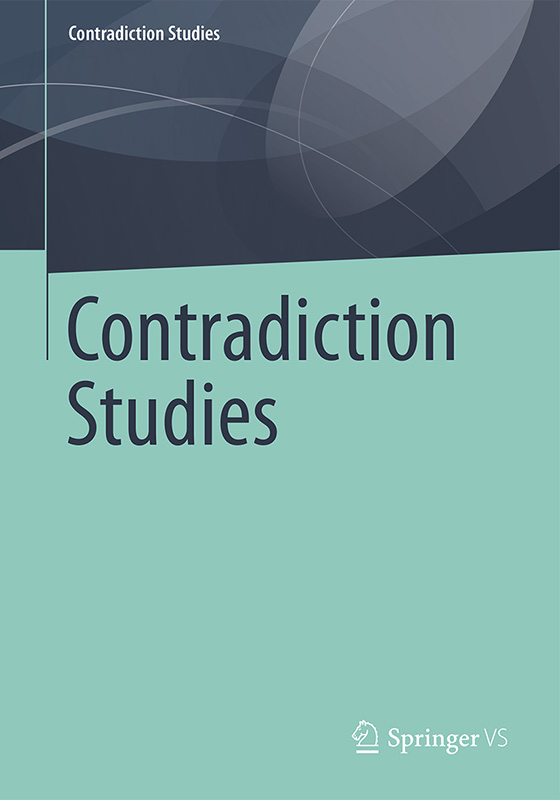 Contradiction Studies
Contradiction StudiesPutting contradiction center stage, this series aims at challenging simplistic conceptualizations of the contradictive. The series editors agree that contradictions are not necessarily about being resolved but that they rather provide starting points for polyphonic conversations.